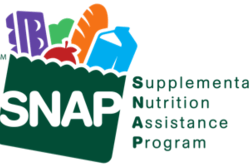A New Yorker Teen on Coronavirus, Homelessness in the City
I attended preschool and religious school at Stephen Wise Free Synagogue, but after my bat mitzvah I felt like I was floating away from the Jewish community. Fortunately, at that time, an experimental teen-led social innovation program, The Greenhouse, came to fruition. During my freshman year of high school, I participated in a semester-long program on housing innovations through The Greenhouse. Over the course of the semester, we learned about innovative models for housing developments in New York City and throughout the country.
One of these sessions took place at the shelter inside of my synagogue. Although I always knew that our synagogue housed the Next Step Men’s Shelter, this experience allowed me to get to know the residents as members of our community. Any stereotypes I had encountered about people who are homeless melted away once we started talking.
I learned more about their stories and was struck by how a stroke of bad luck, such as a job loss or an illness, is enough to lead to the loss of a place to live. I also learned about the long process of securing a Section 8 voucher. I learned that the primary cause of homelessness is lack of affordable housing.
At the end of the session, I understood the complexity of this issue in a new way, and my interest in advocating for people experiencing homelessness was ignited. I was gaining knowledge and breaking down stereotypes. I see people living on the streets in every borough and in every neighborhood, but I think many teenagers with housing may be less likely to pause and reflect on how so many people in the United States are only a step or two away from being in that position.
Homelessness can happen to anyone. We live in an uncertain world and in uncertain times. When other teenagers casually throw around comments (that they may have heard in the media from high ranking politicians) about trying to get rid of “these people,” I feel frustrated. Thousands of teenagers in New York City are homeless or facing food insecurity. Homelessness will become even more of an issue in the upcoming months due to job losses and school closures during the COVID-19 pandemic, both of which disproportionately impact more vulnerable members of society.
There is no formula for moral courage, and I am learning that the actions that one person might consider “brave” might be considered an afterthought by another person. Perhaps people need to stretch beyond their comfort zones and risk repercussions from those who prefer the status quo or act as the opinion leaders of a given institution.
I never thought of myself as having “moral courage,” but I try my best to do the “right” thing. That “right” thing involves avoiding group generalizations and using an evidence-based approach. In the past, I have risked backlash from my peers when I have called out their offensive comments as inappropriate. But as Albert Einstein said, “What is right is not always popular and what is popular is not always right.” While it is easier to ignore the issues in my city, if I don’t speak up, who will?
I am venturing out of my comfort zone to separate fact from myth. In this season of social distancing, and concerns about the impact of COVID-19 on marginalized groups, perhaps we all can find our voices and display moral courage to fight for what is right.
This piece was written as part of JWA’s Rising Voices Fellowship.






